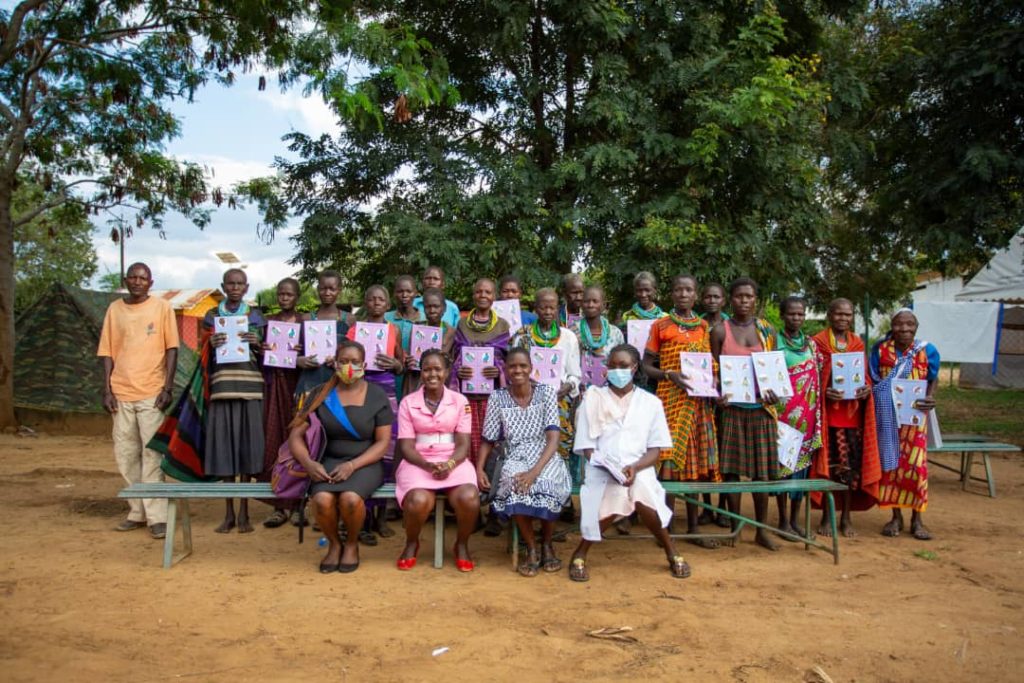Meet
The Koi Koi Stories Team


When Dinnah Nabwire joined GHC as a fellow in 2014, she already identified as a feminist who had a passion for improving sexual health was inspired by her experience growing up in a rural village where the majority of girls get pregnant very young and against their well. Dinnah was seeking a global community of brilliant people who shared a vision of health equity and could support each other in pursuing it. Seven years later, she says that’s exactly what she’s found.
Prior to joining GHC as a fellow in 2015, Precious Mutoro wanted to improve health outcomes in a meaningful way, given the preventable suffering she saw in her community, but she had never worked in healthcare. Joining GHC put her on her pathway and helped her to realize that there’s so much more to health equity than medicine. Precious is now a vocal advocate for sexual health and recently moderated a GHC-hosted fireside chat with global health leader Dr. Senait Fisseha.
Bryan Tumusiime also joined the GHC community in 2014. His journey with health had begun at a young age when he was determined to become a doctor after accompanying a family member to the hospital for an extended stay. It wasn’t until he learned how common maternal and infant death is in Uganda that he realized he wanted to work on prevention through policy and systems change. Joining GHC provided him with the training and entry point he needed to get started: “GHC is a place where your ideas can be brought to life. If you have an idea, there is support and resources and people to make it happen and make it better than you could on your own.”
Mary Ajwang was a practicing clinician in a pediatric ward before joining GHC in 2014. Through her work, she saw many patients presenting with conditions that were preventable and wanted to work on improving the weak systems that exacerbated so many illnesses. After struggling to get her foot in the door, GHC set her on her path to preventing systemic maternal mortality in Uganda and helped her avoid burnout: “Our efficacy as leaders depends on our connections to other humans who share our values. This is what GHC provides.”
Despite coming from a variety of backgrounds and roles, Precious, Dinnah, Bryan, and Mary were bonded by their shared passion for maternal health and dedication to strengthening the systems that cause so many women to lose their lives during childbirth. In Uganda––where these four GHC alumni are from––there are high rates of maternal mortality, particularly among rural communities. They found that these deaths were being caused by a lack of skilled care, the low rate of births taking place in healthcare facilities, and the lack of proximity to trained healthcare practitioners.
To bring long-term solutions to rural Ugandan communities, they banded together to make a plan for a traditional birth attendant (TBA) training intervention called Koi Koi Stories. Each of them brought their own unique set of skills to drive sustainable, contextual solutions with measurable outcomes. Through GHC’s partnership with D-Prize, they received $15,000 in seed funding to pilot their initiative.
Immediately upon disbursement of the funding, COVID-19 lockdowns went into effect. While the rest of the healthcare field was pivoting from specialties to address the pandemic, the Koi Koi Stories team decided that it was more important than ever to forge ahead in their work to address maternal health. They knew that births would not stop just because the pandemic was in full effect. In fact, they knew that this could cause maternal mortality rates to skyrocket if new, stronger interventions weren’t implemented.
Despite the inability to network in person, the resourceful team turned to the GHC network of partners and alumni to move their initiative forward. They connected with GHC placement organization IntraHealth and then the District Health Office to find health facilities where they could conduct their work. After receiving approval, they began training TBAs.
Throughout the pandemic, Koi Koi Stories has trained 200+ TBAs on safe delivery practices, developed a tool for delivery monitoring, and coordinated midwife-led workshops on postpartum hemorrhage risks, signs, and protocol to manage and reduce the risk of death. The constant ability to adapt and lean on strong, trusted relationships within the GHC network was critical to the founders moving forward and implementing these systems.
We’ll send periodic updates from our leaders working on the frontlines of global health around the world and share opportunities to get involved in the movement.
Global Health Corps is a leadership accelerator mobilizing a powerful network of health equity changemakers, 1200+ strong and growing.